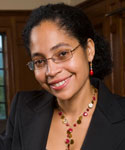Rice University
Office of Public Affairs/News & Media Relations
NEWS RELEASE
David Ruth
713-348-6327
david@rice.edu
Amy McCaig
713-348-6777
amym@rice.edu
HOUSTON – (June 15, 2015) – In 2000, the U.S. Census made a groundbreaking change: It allowed respondents the option of identifying themselves with more than one race. A new analysis of a study from researchers at Rice University and the University of Chicago sought to explore a possible expansion of gender options beyond the current binary choice of “male” and “female.”
Drawing on survey data, the researchers examined whether people who identify as transgender — having a gender identity that differs from one’s assigned sex — would want to have the option of identifying themselves as transgender on the census.
Jenifer Bratter, an associate professor of sociology at Rice and the study’s second author, said that the research data suggests that if a transgender option were added to the Census, it might only be used by a small segment of the transgender population. Bratter said she expected people who identified as transgender on the survey to widely indicate they’d want to check off a “transgender” box on the Census, but that didn’t turn out to be the case.
“People who identified as male or female and who felt others viewed them as unequivocally male or female — even when that wasn’t their sex assigned at birth — were less likely to have an interest in checking off the ‘transgender’ option,” she said. “A transgender option is most attractive to those who feel outsiders do not see them as they see themselves.”
Bratter also noted that census data has been historically important in regard to tracking discrimination.
Kristen Schilt, an assistant professor of sociology at the University of Chicago and the study’s lead author, said that adding a transgender option may be more attractive to people who feel they suffer discrimination on the basis of their transgender identity. “The Census should consider adding multiple gender options — as it did for the race question — and allow respondents to check all identities they feel are salient.”
The full blog highlighting the research is available at http://kinder.rice.edu/Bratter060815/.
To arrange an interview with Bratter, contact Amy McCaig, senior media relations specialist at Rice, at 713-348-6777 or amym@rice.edu.
-30-
Follow Rice News and Media Relations on Twitter @RiceUNews.
Located on a 300-acre forested campus in Houston, Rice University is consistently ranked among the nation’s top 20 universities by U.S. News & World Report. Rice has highly respected schools of Architecture, Business, Continuing Studies, Engineering, Humanities, Music, Natural Sciences and Social Sciences and is home to the Baker Institute for Public Policy. With 3,888 undergraduates and 2,610 graduate students, Rice’s undergraduate student-to-faculty ratio is 6-to-1. Its residential college system builds close-knit communities and lifelong friendships, just one reason why Rice is ranked among some of the top schools for best quality of life by the Princeton Review and for best value among private universities by Kiplinger’s Personal Finance.



Leave a Reply